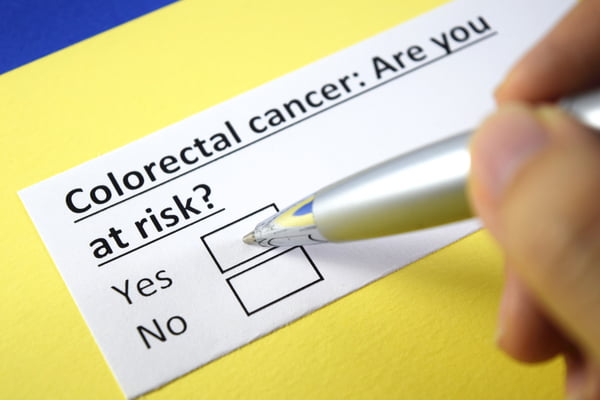Causes of Colorectal Cancer
- Updated on: Jul 29, 2024
- 3 min Read
- Published on Feb 21, 2021

Normally, healthy cells grow and divide in regularly to keep your body functioning normally. But when the DNA of a cell does not work well due to some damages (such as when it becomes cancerous), cells continue to divide. The uncontrolled division of cells forms a tumor.
Over times, this uncontrolled division can destroy the surrounding normal tissues and cells of the body and the cancer can even travel to other body tissues and organs.
Most cases of colorectal cancer first develop as polyps on the inner lining of the bowel/colon. However, the development of the polyps does not necessarily cause you cancer. Some may progress to cancers, some may not. Most of the polyps are non-cancerous.
Inherited gene mutations
Inherited gene mutations are linked to colorectal cancer. These mutations can be passed to generations. But only a small percentage of colorectal cancer cases are genetic. Also, inherited gene mutations do not make colorectal cancer inevitable. They only increase the risk of developing the cancer – though the increased risk is significant.
Common types of inherited colorectal cancers are:
Hereditary nonpolyposis colorectal cancer (HNPCC): Lynch Syndrome is an example of hereditary nonpolyposis colorectal cancer. People with HNPCC generally develop colorectal cancer before the age of 50 years.
Familial adenomatous polyposis (FAP): It is a rare disorder that causes you thousands of polyps to develop inside your colon and rectum. If the polyps remain untreated, FAP has a greatly increased risk of converting into cancer by the age 35.
The main risk factors for bowel cancer are outlined below.
Risk Factors
Age
Age is a risk factor and colorectal cancers generally develop in older people. About 1 in every 20 people has colorectal cancer. Almost 18 out of these 20 cases are diagnosed in people over the age of 60. But, colon cancer can occur in younger people too, though it is much less frequent.
Family history
If you have someone in your first degree relation (such as mother, father, brother, sister) suffering with colorectal cancer, there are higher chances that you may get it. If you are concerned that your family history puts you at higher risk, you should consult your doctor. He or she may recommend screening for you.
Your doctor may recommend you to a geneticist, who can help you assess the risk of developing the cancer due to genetic linkage and also suggest about the screening programs for testing purposes.
Race
African-Americans are at greater risk of developing colorectal cancer than people of other races.
Personal history of colorectal cancer
If you ever had colorectal cancer or adenomatous polyps, it is more likely that you will develop the cancer in future. A past case of colon cancer increases the risk of another colon cancer, particularly if your first cancer was diagnosed before the age of 50.
Diet
Colorectal cancer is considered to be associated with diet. A diet low in fiber and high in fat and calories increases the risk of developing it. Evidences suggest that a diet that is high in red and processed meat can also increase your risk of developing bowel cancer. Research in this area though shows mixed results.
Some scientists consider fat as the main culprit, while others believe protein is the main reason.
The Department of Health, UK advises people who eat more of (about 90g a day) red and processed meat reduce it to about 70g a day or even lesser.
People whose diets are high in fruits and vegetables are believed to be at a reduced risk of colon cancer.
Smoking
People who smoke are more likely to develop colorectal cancer, as well as other types of cancers.
Alcohol
Heavy consumption of alcohol (or sometimes even consumption of alcohol) increases the risk of colon cancer. Drinking of alcohol has been found to be associated with an increased risk of colorectal cancer in several reliable evidences.
Obesity
If you’re overweight, it is important that you lose weight. It may help lower your chances of getting the cancer and also improve your overall health.
Being overweight is considered to be linked to an increased risk of colorectal cancer, in particular, in men.
Sedentary Lifestyle / Physical Inactivity
People who are physically inactive or less active are at a higher risk of developing colorectal cancer. Getting regular exercises or increasing your physical activity may reduce the risk.
Diabetes
People who have diabetes and insulin resistance are at an increased risk of colorectal cancer.
Radiation therapy
Treatments involving radiations directed at the abdomen to treat various conditions such as cancers may increase the risk of colorectal cancer.












